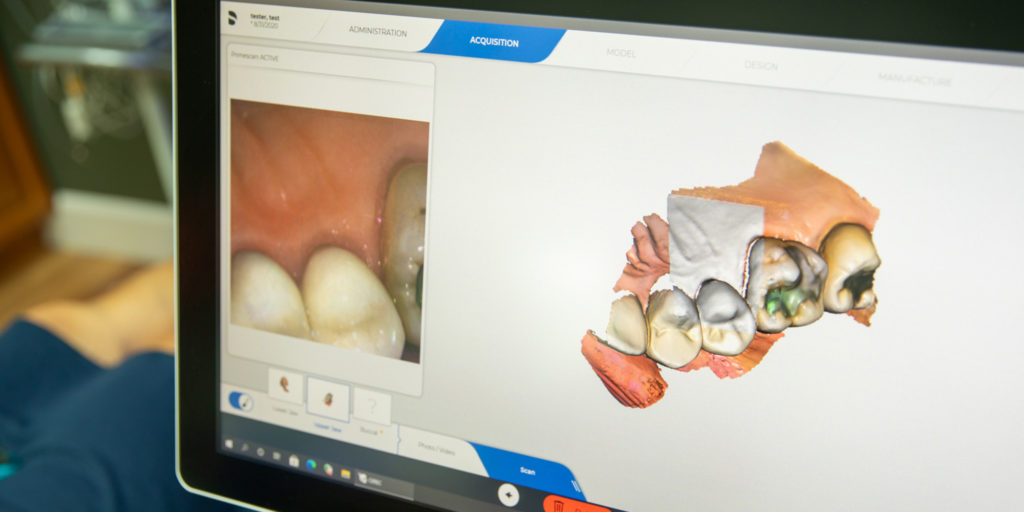

At Dentistry by Design, our Spring Hill, TN dentist is dedicated to helping you prolong the life of your dental fillings. To maximize the lifespan of your dental filling, it’s essential to take proper care of them. If you experience any issues with your dental fillings, contact your dentist to ensure proper treatment and resolution.
Our Spring Hill, TN dentist provides guidance on how to effectively care for your new filling. To book an appointment, contact our dental office today by calling (931) 391-3089.

A tooth filling, also known as a dental filling, is a common dental procedure used to repair teeth damaged by tooth decay. When a cavity forms due to decay, a filling is used to restore the tooth’s structure and function. Fillings can also be used to repair teeth that have been worn down by grinding (bruxism) or have been broken. According to The National Health and Nutrition Examination Survey, 92% of people aged 20-64 have had cavities in their adult teeth. This highlights the importance of dental fillings in maintaining oral health.
There are several types of dental fillings available, each with its own set of advantages and disadvantages. Composite fillings are tooth-colored and blend seamlessly with your natural teeth, making them ideal for front teeth. Amalgam fillings, which are silver, are known for their durability and are often used for molars that endure heavy chewing. Gold fillings, made from a gold alloy, are also highly durable and are used for teeth that require strong, long-lasting restorations. Your dentist will help you choose the best type of filling based on your specific needs and preferences.
Following your tooth filling procedure, it’s important to maintain a consistent oral hygiene routine. Regular brushing and flossing are vital for keeping your dental fillings clean and free from bacteria. Brush your teeth at least twice daily using a soft-bristled toothbrush and fluoride toothpaste. Floss between your teeth every day to remove plaque and food particles that can lead to decay and gum disease.
To prevent damage to your dental filling or gum irritation, choose a soft-bristled toothbrush. Hard-bristled brushes can potentially wear down the filling material or cause the edges to become rough, resulting in premature wear or discomfort.
While brushing, be gentle and avoid using excessive force when cleaning around the dental filling. Vigorous brushing or using a hard-bristled brush can place unnecessary stress on the fillings, leading to cracks or loosening. Remember, thorough cleaning can be achieved without aggressive brushing.
Acidic and sugary foods can contribute to tooth decay and weaken fillings. Limit your consumption of acidic beverages like soda, citrus juices, and sports drinks. Reduce your intake of sugary snacks, candies, and desserts. If you consume these foods, rinse your mouth with water afterward to help neutralize acids and reduce the risk of developing another dental cavity. Additionally, acidic and sugary foods can also contribute to sensitive teeth after a dental filling.
Chewy or sticky foods, such as taffy, chewing gum, or hard candies, can potentially dislodge or damage your dental fillings. These foods create excessive pressure on the filling material, leading to cracks or breakage. Opt for softer and easier-to-chew foods to minimize the risk of damaging your fillings.
Routine dental check-ups are crucial for monitoring the condition of your dental filling. Our Spring Hill, TN dentist will examine the fillings during your visits to ensure they’re intact and functioning properly. Regular cleanings and exams also allow our dentist to detect any signs of decay, infection, or damage early on.
If you’re experiencing mild to moderate pain, tooth sensitivity, or discomfort around your dental fillings, it’s essential to report it to your dentist promptly. Sensitivity to hot and cold foods or drinks, biting pressure, numbness, or changes in your bite may indicate a problem with the filling. Early intervention can help prevent more significant issues and ensure your fillings are repaired or replaced if necessary.
Tobacco use, whether smoking or chewing tobacco, can negatively impact your oral health and the longevity of a dental filling. Tobacco products increase the risk of gum disease, tooth decay, and oral cancer. Smoking can cause discoloration of the fillings over time.
Eating a balanced diet rich in essential nutrients, such as vitamins and minerals, promotes good oral health and supports the longevity of dental fillings. Include plenty of fruits, vegetables, lean proteins, and whole grains in your diet. These nutrient-rich foods help strengthen teeth and gums, reducing the risk of decay and supporting the overall health of your mouth and your dental fillings.
After getting a dental filling, it’s crucial to be mindful of what you eat to protect your new filling and minimize discomfort. For silver fillings, it’s typically recommended to wait 24 hours before eating solid foods. Resin fillings, on the other hand, set immediately, so you may be able to eat right away. However, it’s best to wait until the local anesthetic wears off to avoid accidentally biting your tongue or cheek.
In the first 24 hours after the procedure, avoid sticky, hard, or cold foods and drinks. Opt for soft foods such as scrambled eggs, yogurt, and mashed potatoes. You can also eat fruits and vegetables, crackers, bread, cheese, and other everyday items you likely already have in your kitchen. Be cautious with hot beverages, as the numbness from the local anesthetic might prevent you from feeling the temperature, leading to potential burns or damage to the dental filling.
Remember to follow your dentist’s instructions for post-filling care, and contact them if you experience any moderate pain or discomfort that persists or worsens over time. Proper aftercare is essential for ensuring the longevity of your new filling and maintaining overall oral health.

Signs of a cavity include:
Yes, a dentist can determine if patients need a filling replaced through a dental examination. During the examination, the dentist will visually inspect the filling and may also take dental X-rays to assess the condition of the filling and the underlying tooth structure.
By following these dental filling aftercare instructions, you can help maintain the integrity of your fillings and promote good oral health. Schedule your appointment with Dr. Robinette by calling (931) 391-3089 as a new patient and (931) 486-0700 as a returning patient or filling out our online contact form. We’re excited to meet new and returning patients from around Spring Hill, including Thompson’s Station, Jameson, and Bethesda, TN.
I understand the information disclosed in this form may be subject to re-disclosure and may no longer be protected by HIPAA privacy regulations and the HITECH Act.